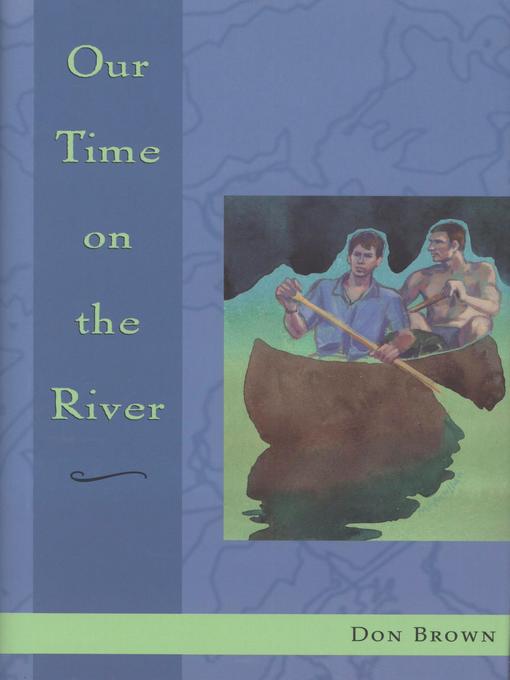
Our Time on the River
کتاب های مرتبط
- اطلاعات
- نقد و بررسی
- دیدگاه کاربران
نقد و بررسی

February 3, 2003
In Brown's (Alice Ramsey's Great Adventure) brief, straightforward first novel set in the late 1960s, 14-year-old Steve and his older brother, David, canoe down the Susquehanna River at their father's insistence, shortly before David ships off to Vietnam. As they travel, they battle nature—rain and lightning, a fallen tree, raccoons ransacking their food supplies—and sometimes each other. They also encounter an array of people in the towns they pass, from a Dairy Queen owner who once rowed the river himself, to a carnie who recruits them for a day. Many of these strangers share their own war stories or their thoughts about Vietnam, and David gradually reveals his own complicated position ("Maybe trying to keep your ass from being blown away is smarter," David admits about draft dodgers). A run-in at a general store brings the Vietnam controversy sharply into focus, as WWII vets first subtly imply that their war was more important than David's, then physically intimidate the brothers. Even readers unfamiliar with the debate will be able to relate to Steve's difficult relationship with his brother (who often dismisses him as " 'bozo,' 'jerk,' or 'loser,' ") and will understand how much it means when the siblings' relationship deepens during their two-week trip. Some of the musings seem too scripted (e.g., "Vietnam didn't scare David, or so he said, but was he telling me the truth? Was he telling himself the truth?"), but overall, Brown paints a convincing picture of brotherly bonding and of a complex era. Ages 12-up.

April 1, 2003
Gr 7-10-Steven's older brother, David, has a few short weeks at home before he ships out for Vietnam. Mindful of the uncertain future, their father insists that the two boys spend some time together on a canoe trip, just as he and David had done years before. David is uninterested and openly hostile to the younger boy as they embark down the Susquehanna River. Steven remains unruffled as his moody sibling seems distant and preoccupied. The brothers contend with little more than insects, a wet sleeping bag, and rural scenery in an uneventful beginning that gains momentum as they paddle. They meet girls, carny workers, and story-filled veterans, peripheral characters who react in different ways to the combat-bound teen. Steven absorbs every nuance and patiently cares for David when he gets drunk and later rescues him from drowning. David returns the favor when Steven seriously cuts himself. The canoe trip is clearly just a vehicle for the bonding of these two young men at a crucial point in their lives. Prosaic writing does not hinder the narrative but strengthens Steven's voice, that of a 14-year-old boy keenly aware that his brother might soon die in a war. Readers who enjoy the style of Gary Paulsen's The Beet Fields (Delacorte, 2000) will find a thoughtful choice here.-Vicki Reutter, Cazenovia High School, NY
Copyright 2003 School Library Journal, LLC Used with permission.

April 1, 2003
Gr. 7-10. Based on an actual trip the author took down the Susquehanna River in 1967, this first novel follows two brothers who canoe for two weeks together from Cooperstown, New York, to Harrisburg, Pennsylvania, before the older brother, David, is sent to Vietnam. David has dropped out of college to enlist, a decision that dredges up painful family memories of their uncle's death and their father's injury during World War II. The trip downstream is fairly easy despite bugs, rain, and the occasional racist warmonger, and it helps the brothers get to know one another and themselves better. It also helps them better understand humanity, both its compassionate and dark sides. Through the younger brother's immediate first-person narrative, Brown paints an interesting, accurate portrait of 1960s' life and culture. The lyrical descriptions clearly acknowledge the power and underlying tension of the river, the countryside, and the times, as well as the polarity created by the war. While not dramatic historical fiction, this is a satisfying read, with the river journey offering a microcosm of society at that time.(Reprinted with permission of Booklist, copyright 2003, American Library Association.)

























دیدگاه کاربران